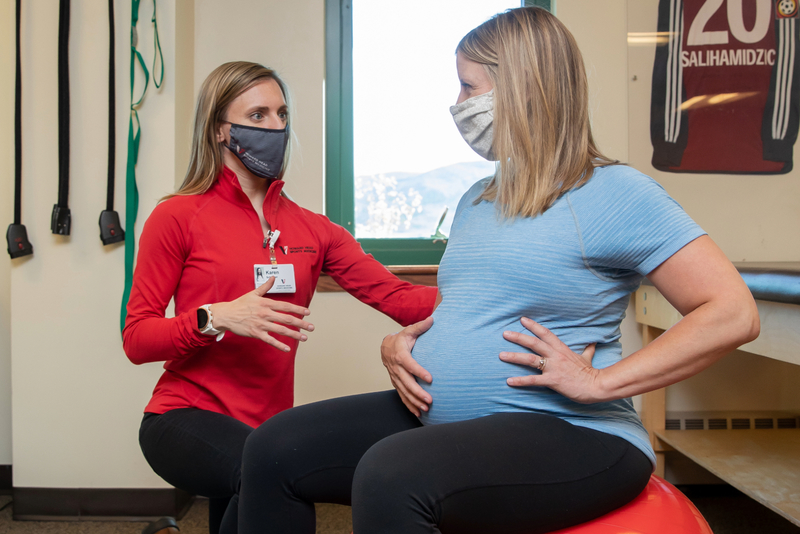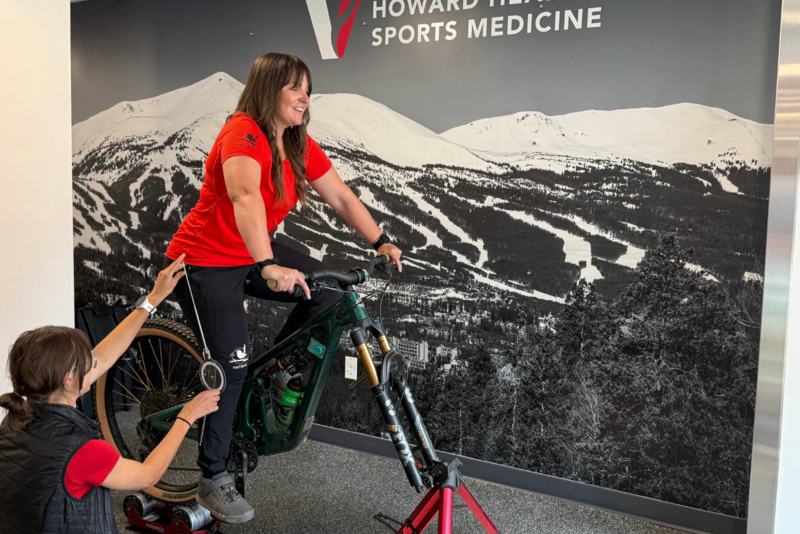News
Tips for Postpartum Pelvic Health
Kamerin Hargrove
August 05, 2024

Stephanie Drew, a physical therapist and lead pelvic health specialist at Howard Head Sports Medicine, says mobility is the key to driving stability when it comes to strengthening the pelvic floor.
“I always like to recommend deep breathing to build mobility,” she says. “In addition, Kegel exercises can help build mobility and strength in the pelvic floor.”
Drew says that while Kegels improve pelvic health, they also contribute to the function of the whole body.
“Most people I see who do Kegels incorrectly are way too aggressive with it,” she says. “It needs to be gentle, and it needs to be a coordinated focus across multiple body parts.”
A pelvic health specialist is the most qualified to teach women how to perform Kegels safely and effectively. However, she says that Kegels are not the end-all-be-all.
“Your gut and proper nutrition also make a big difference,” she says. “Drink water and eat plenty of fiber.”
According to Drew, two weeks and six weeks postpartum are the intervals when most patients schedule their first pelvic health appointments.
“At two weeks postpartum, all I want you to do is figure out how to sleep and care for your baby, and if you’re walking around a little bit, awesome,” she says. “Around six weeks is when we’re ramping up your activity.”
For new moms who have had C-sections, she says activity levels look a little different compared to those who have had vaginal deliveries due to the healing of fascia in the abdominal wall.
“We don’t really encourage core activity to its highest level after C-sections until three months postpartum because at six weeks, the fascia in the abdominal wall is only 50 to 60 percent of its original strength,” she says. “Yes, we want you to become active again, but you need to be respectful of your body, no matter how strong you are.”
One of Drew’s many mantras is, “Ask for movement, don’t force movement,” and she stresses the importance of a positive relationship with your body.
“If there is a barrier—whether we are talking about muscle or strength—and we challenge it a little bit each time, we give the body a chance to recover and adapt,” she says. “If we push our barriers too hard, then our body fights back in order to protect itself.”
Pelvic health specialists are available at Howard Head’s clinics in Eagle, Edwards, Vail, Dillon and Frisco. Women are encouraged to schedule pelvic health appointments at any points throughout pregnancy, postpartum or even years after childbirth. “We can help women address pelvic health issues at any point in life,” explains Drew. “Our goal is always to help women live their best lives.”
More News
-
More

Howard Head physical therapist headed to Milano Cortina with U.S. Snowboard Cross Team
When Vail Health Howard Head Sports Medicine physical therapist Helen Bradley learned she was headed to the Winter...
-
More

Eagle physical therapist joins the U.S. Air Force’s 9G club
Eagle resident Devyn Kammert, a physical therapist with Howard Head Sports Medicine,
-
More

Optimize Your Ride: What Is a Medical Bike Fit and Why It Matters
Whether you're a weekend warrior, daily commuter or competitive cyclist, comfort and performance on your bike are...





